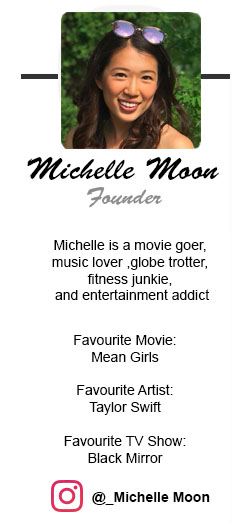Tech’s Biggest Names Gather for Final Collision Conference in Toronto
For its final year in Toronto, Collision Conference returned to the Enercare Center, drawing over 37,000 attendees from 117 countries. This year’s notable participants included former Grand Slam tennis champion turned entrepreneur Maria Sharapova, OnlyFans CEO Keily Blair, billionaire businessman Frank McCourt, and AI pioneer Geoffrey Hinton.
This year signifies the final occasion that the traveling conference, which made its first appearance in Toronto in 2019, will take place in the city. Remarkably, around 45 percent of the startups exhibiting this year were founded by women—the highest percentage in Collision’s history.
Event organizers have revealed that next year the conference will relocate to Vancouver, where it will be rebranded as a North American version of the Web Summit conferences, which are also hosted in Portugal, Brazil, and Qatar.

On the first day of the conference, we attended a Q&A session with social media personality Loren Gray. She shared her experiences and thoughts on privacy and managing a public life, emphasizing the importance of not posting in real-time for safety reasons, saying, “I usually don’t post from a place until I leave… it’s very easy to post something when you’re in the moment, but you have no idea who’s watching your social media platform.” Loren also talked about her music career, detailing her journey from signing her first record deal at 16 to navigating the pressures of the music industry. She highlighted the struggle for artistic control, recounting how she fought to release her successful single “Queen” despite label resistance, saying, “I begged the label, like please let me release the song… it’s still my best performing song.” Loren discussed the challenges of maintaining a work-life balance, emphasizing the need for a clear separation between work and personal time to avoid burnout, especially in a city like LA. She stated, “I got it down to a nine to five workflow… after that around 3:00, it’s I don’t care anymore… that’s kind of the only way that I’ve been able to keep that sort of balance.”

At the recent MainStage talk titled “How to Build a Brand,” industry experts Jacob Pace (CEO, Flighthouse), Loren Gray (social media personality), Keily Blair (CEO, OnlyFans), and Tony Khan (CEO, AEW) shared their invaluable insights on effective brand building.
Jacob Pace emphasized the importance of not delegating too early in the process. He advised that doing as much as you can yourself initially helps you understand your product better. Only when absolutely necessary should you bring on new team members, ensuring they are the right fit for your vision.
Loren Gray shared her journey as a content creator, highlighting the significance of recognizing one’s strengths and weaknesses. In the beginning, she managed every aspect of her brand, from editing to marketing. However, she eventually outsourced tasks like video editing to professionals, which allowed her to focus on her strengths. This shift improved her workflow and enabled her to bring in management and agencies for business support.
Keily Blair discussed a streamlined approach to team building. She advocated for a “dumbbell model” that includes senior experts and eager junior staff, with minimal middle management. This structure offers flexibility and scalability, utilizing independent contractors for specialized roles, thereby avoiding the pitfalls of overhiring.

On day two, grand slam winner and entrepreneur Maria Sharapova shared her insights during the talk titled “Igniting a New Era of Sports,” highlighting the evolving role of AI in sports and its impact on both athletes and fans. She discussed her approach to match preparation, emphasizing the importance of knowing her draw and using it as motivation, especially when facing higher-seeded players.
Sharapova also touched upon the technological advancements in sports, including IBM’s Watsonx, which is already revolutionizing performance analysis, efficiency enhancement, and fan engagement across a vast global fanbase. In her experience, AI tools like Watsonx streamline once time-consuming preparation processes, allowing coaches and athletes to focus more on strategic planning and mental preparation.
From a fan’s perspective, Sharapova noted that informed viewers contribute to a richer sporting experience. When fans are knowledgeable about players’ backgrounds and performances, they become more engaged, creating a more vibrant atmosphere that benefits athletes and spectators alike.

On Day 3, actor Nathalie Kelley, in her talk addressing “Big Tech Won’t Save Us,” expresses a vision of a world free from contamination and purified, which she sees as the fundamental goal of technology. She critiques industrialization and modernization for severing humans from their interconnectedness within the web of life. Nathalie laments how modern society has distanced itself so much from nature that it’s often perceived as separate and distant, to be visited on weekends. This perspective sharply contrasts with Indigenous worldviews, such as in Quechua culture, where there isn’t even a distinct word for “nature,” highlighting a profound connection with the natural world that modern societies have lost.




Pingback:Interview ‘Brett Martin , co-founder KumoSpace and Charge Ventures' - The Extra Mile
Pingback:Interview ‘Avori Henderson' - The Extra Mile